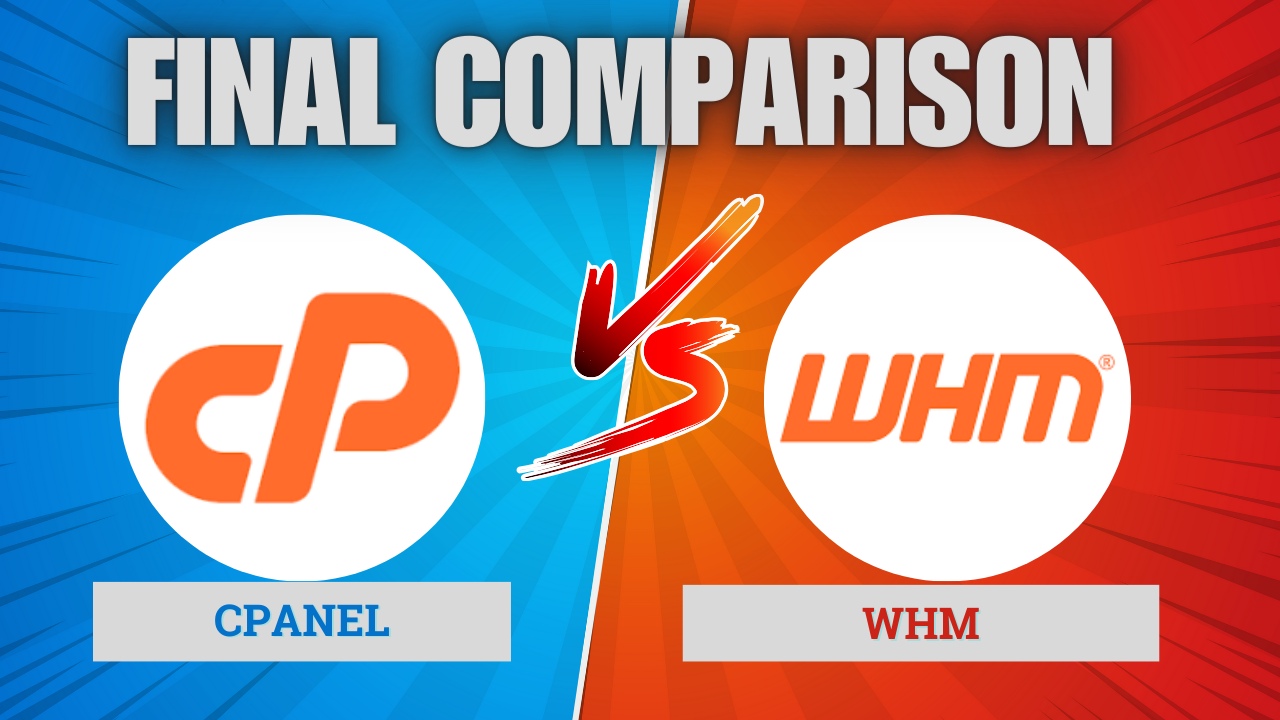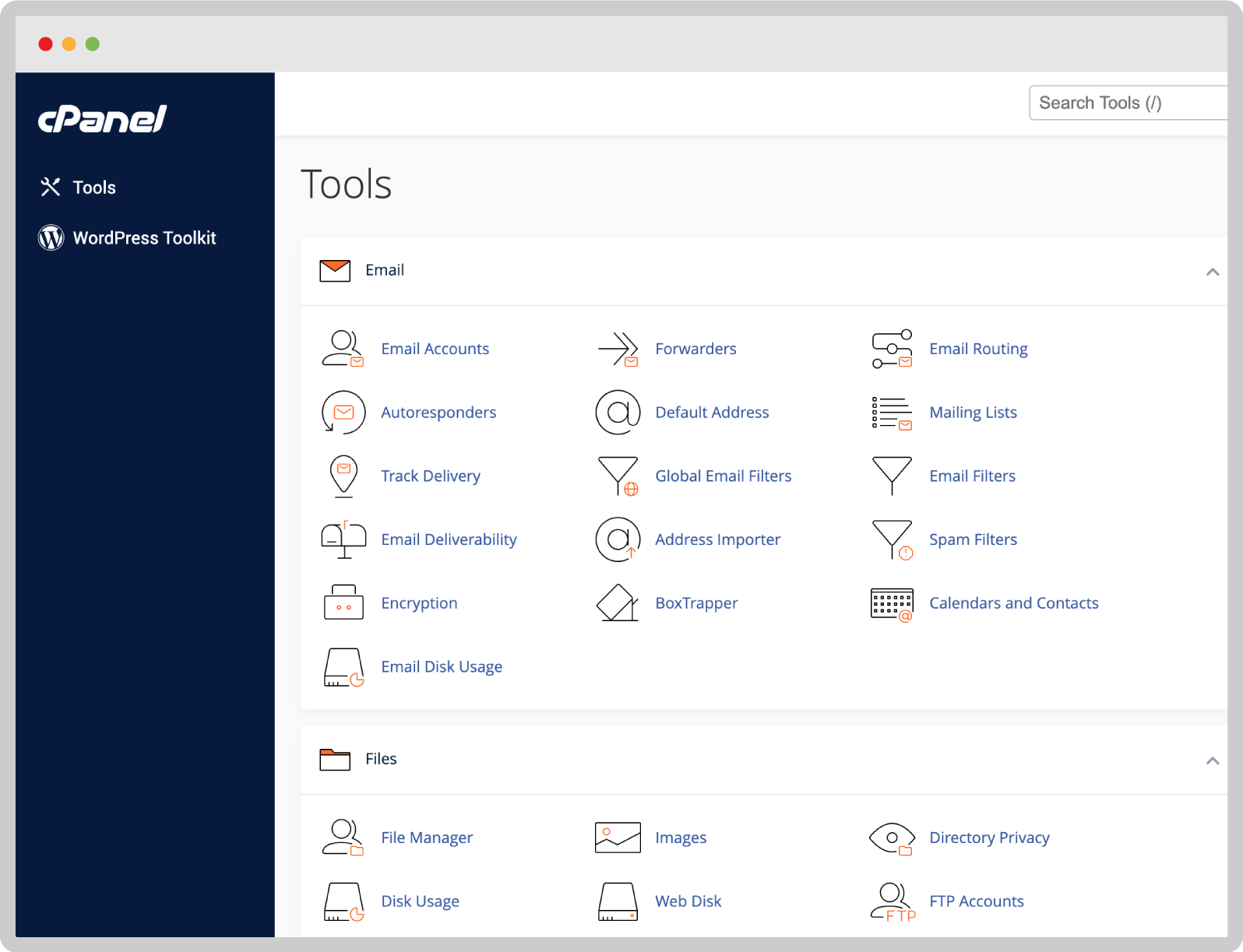Choosing between cPanel and WHM can be confusing. Both tools are popular for managing web hosting.
But they serve different purposes and offer unique features. Web hosting control panels simplify server management. CPanel and WHM are two of the most widely used panels. Understanding their differences can help you make an informed choice. CPanel focuses on website management for users.
WHM, on the other hand, provides administrative control for server owners. This comparison will explain the main functions of each. By the end, you’ll know which tool suits your needs best. Let’s dive into the details and explore the strengths of cPanel and WHM.
Introduction To Cpanel And Whm
Understanding Cpanel and WHM can simplify web hosting tasks. Both tools help manage websites and servers. They are crucial for web administrators.
What Is Cpanel?
Cpanel is a user-friendly web hosting control panel. It allows users to manage their website easily. Tasks like setting up emails, managing files, and creating databases are simple. The interface is intuitive. It suits beginners and experts alike.
What Is Whm?
WHM stands for Web Host Manager. It is a powerful tool for server management. WHM allows administrators to manage multiple Cpanel accounts. It provides a higher level of control. Users can create and manage hosting packages. It is essential for web hosting companies.
Both Cpanel and WHM are crucial for web hosting. They complement each other. Cpanel focuses on website management. WHM focuses on server management. Together, they provide a complete solution.

Key Features Comparison
Choosing between cPanel and WHM can be a challenge. Both tools have unique features that cater to different needs. To help you make an informed decision, let’s compare their key features.
Cpanel Features
cPanel is a user-friendly web hosting control panel. It offers a wide range of features to manage your website efficiently.
- File Management: Easily manage files with the File Manager.
- Domain Management: Add, remove, and configure domains with ease.
- Email Management: Create and manage email accounts.
- Database Management: Use MySQL and PostgreSQL databases.
- Security: Protect your site with SSL/TLS settings.
- Backup: Schedule backups for your data.
- Software Installation: Install popular apps like WordPress.
- Performance: Monitor resource usage and optimize performance.
Whm Features
WebHost Manager (WHM) offers advanced features for server management. It is ideal for hosting providers and system administrators.
- Account Management: Create and manage multiple cPanel accounts.
- Server Configuration: Customize server settings and configurations.
- Security Management: Implement advanced security measures.
- Reseller Management: Set up and manage reseller accounts.
- Backup Management: Configure and manage backup schedules.
- Software Updates: Control and automate server software updates.
- Resource Allocation: Allocate resources to different accounts.
- DNS Management: Manage DNS zones and records.
The table below summarizes the key features of cPanel and WHM:
| Feature | cPanel | WHM |
|---|---|---|
| File Management | Yes | No |
| Account Management | No | Yes |
| Server Configuration | No | Yes |
| Email Management | Yes | No |
| Database Management | Yes | No |
| Security Management | Basic | Advanced |
| Backup Management | Basic | Advanced |
| Reseller Management | No | Yes |
| Software Installation | Yes | No |
| Resource Allocation | No | Yes |
User Interface And Experience
The user interface and experience of web hosting management tools are crucial. They determine ease of use and efficiency. Both cPanel and WHM offer distinct interfaces. Each caters to different user needs and expertise levels. Understanding these differences can help you choose the right tool.
Cpanel User Interface
cPanel has a user-friendly interface. It’s designed with beginners in mind. The dashboard is intuitive and easy to navigate. Icons represent various functions. These icons are grouped into categories. This makes it simple to find what you need.
Tasks like creating email accounts or managing files are straightforward. Each feature includes helpful descriptions. These descriptions guide users through processes. The interface is also customizable. Users can adjust it to fit their preferences.
Whm User Interface
WHM, or Web Host Manager, targets more advanced users. Its interface is less graphical than cPanel. It offers a broader range of administrative tools. This includes server configuration and account management. The layout is more text-based.
WHM provides detailed information and control. It’s designed for users managing multiple websites or servers. While not as visually appealing, it is powerful. It allows for in-depth customization and monitoring. Advanced users find it comprehensive and efficient.

Security And Reliability
In the world of web hosting, security and reliability are crucial. Both cPanel and WHM offer robust features to ensure your server and websites remain secure. Let’s explore the security measures of each.
Cpanel Security Measures
cPanel includes numerous security features to protect your websites. These features help safeguard user data and prevent unauthorized access.
- IP Deny Manager: Blocks unwanted IP addresses from accessing your site.
- Leech Protection: Prevents users from publicly posting their passwords.
- SSL/TLS Management: Simplifies SSL certificate installation to secure your site.
- ModSecurity: A web application firewall that guards against common exploits.
Whm Security Measures
WHM provides advanced tools to manage and protect the server environment. These tools ensure that all hosted sites remain safe.
- CSF (ConfigServer Security & Firewall): A firewall that protects against attacks.
- cPHulk Brute Force Protection: Blocks brute force attacks on your server.
- Secure SSH: Manages SSH keys and settings for secure remote access.
- Two-Factor Authentication: Adds an extra layer of security to user accounts.
Both cPanel and WHM offer extensive security features. These measures help maintain the safety and reliability of your hosting environment.
Performance And Scalability
Choosing between cPanel and WHM? Performance and scalability are key factors. Both tools offer unique features. But how do they compare in these critical aspects?
Cpanel Performance
cPanel is designed for managing individual hosting accounts. It provides a user-friendly interface. Users can easily manage website files, emails, and databases. cPanel performs well with minimal resources. It is optimized for shared hosting environments.
cPanel uses Apache as the default web server. This ensures good performance for most websites. However, resource-heavy websites may face issues. cPanel supports various caching mechanisms. These can boost your website’s loading speed.
Key Features of cPanel Performance:
- Optimized for shared hosting
- Lightweight and user-friendly
- Supports Apache web server
- Multiple caching options
Whm Performance
WHM (Web Host Manager) is designed for server administrators. It offers advanced tools for managing multiple cPanel accounts. WHM allows you to allocate resources efficiently. This ensures better performance for all hosted websites.
WHM supports various web servers like Apache, Nginx, and LiteSpeed. This provides flexibility in performance optimization. WHM also integrates with monitoring tools. These help in identifying and resolving performance issues.
Key Features of WHM Performance:
- Advanced resource management
- Supports multiple web servers
- Integration with monitoring tools
- Optimized for multiple cPanel accounts
| Feature | cPanel | WHM |
|---|---|---|
| Resource Management | Basic | Advanced |
| Web Server Support | Apache | Apache, Nginx, LiteSpeed |
| Scalability | Low | High |
| Monitoring Tools | Limited | Integrated |
In summary, cPanel is ideal for individual users. It offers good performance for shared hosting. WHM is best for server administrators. It provides advanced resource management and scalability. Choose based on your needs.
Pricing And Licensing
Choosing between Cpanel and WHM involves understanding their pricing and licensing. This section breaks down the costs associated with each, helping you make an informed decision.
Cpanel Costs
Cpanel is often billed monthly, catering to various budget needs. Below is a table summarizing the costs:
| Plan | Monthly Cost | Features |
|---|---|---|
| Solo | $15 | 1 Account |
| Admin | $20 | Up to 5 Accounts |
| Pro | $30 | Up to 30 Accounts |
| Premier | $45 | Up to 100 Accounts |
For larger needs, Premier offers a scalable solution. Cpanel also supports annual billing with discounts.
Whm Costs
WHM (Web Host Manager) usually comes bundled with Cpanel, making their pricing interdependent. Here’s how it breaks down:
- Most WHM plans include Cpanel licenses.
- Pricing for WHM follows the same tiered structure as Cpanel.
- WHM plans can range from $20 to $45 per month.
It’s important to note that WHM handles multiple Cpanel accounts. It is ideal for resellers or web hosting companies.
Licensing for both Cpanel and WHM is straightforward. You can purchase directly from their website or through hosting providers.

Frequently Asked Questions
What Is Cpanel Used For?
CPanel is used to manage web hosting servers. It helps with website files, databases, and emails.
What Does Whm Stand For?
WHM stands for Web Host Manager. It is used for server and account management.
How Does Whm Differ From Cpanel?
WHM is for server admin tasks. CPanel is for individual website management.
Can Cpanel And Whm Be Used Together?
Yes, they are often used together. WHM manages servers, while cPanel manages websites.
Is Whm Suitable For Beginners?
WHM is more complex than cPanel. It is better for advanced users or admins.
Conclusion
Choosing between cPanel and WHM depends on your needs. Both offer unique benefits. CPanel is user-friendly for managing websites. WHM provides advanced server management. Consider your technical skills and requirements. Small businesses may prefer cPanel for simplicity. Larger organizations might benefit from WHM’s capabilities.
Evaluate your budget and resources. Both tools can enhance your hosting experience. Make a choice that aligns with your goals.
